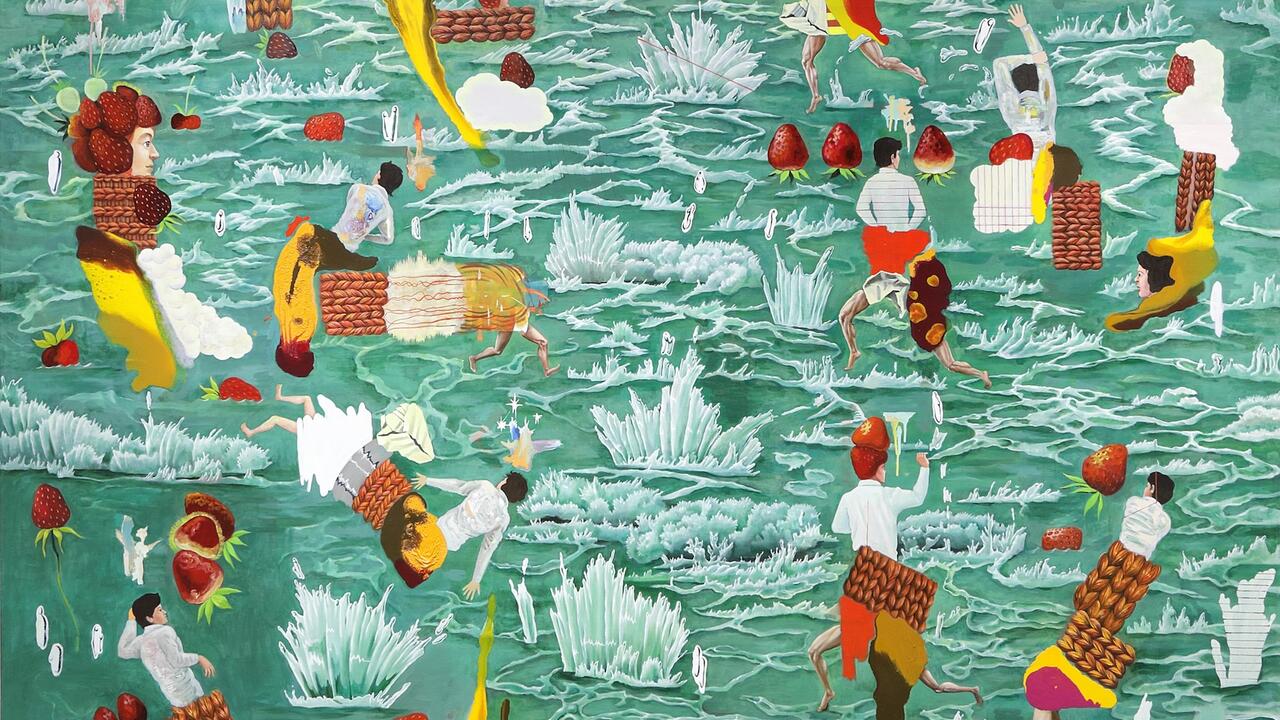Weekend Reading List: The Legacy of Lyra McKee; The Art of Forensic Listening
What the frieze editors have been reading this week
What the frieze editors have been reading this week

- ‘A Fearless Seeker of Truth’: In the Irish Times, writers pay tribute to Lyra McKee, the Northern Irish investigative journalist who was murdered on the streets of Derry on 18 April
- And McKee, herself, speaking at a 2017 TEDx event about how changing religious teaching on LGBT people will save lives
- ‘Has organized labour become white collar? Not at all. We all wear the same collar. It’s called capitalism.’ For Splinter, Hamilton Nolan explains why everyone needs to organize
- Was modern architecture shaped by the 20th century’s obsession with tuberculosis? For frieze, Thomas McMullan reviews Beatriz Colomina’s latest book, X-Ray Architecture
- As Cambridge University launches an investigation into its links with slavery, Beatrice Obe asks: what is there to investigate? (Via gal-dem)
- For the New Yorker, Lauren Collins discusses the legacy of Barbare Jorjadze, ‘the culinary muse of the Caucasus’, and the rise of Georgian cuisine in the US
- And a second from the New Yorker: ‘The Art of Fact’, in which Nicholas Lemann discusses the late John Hersey and the evolution of nonfiction writing
- ‘It Allows a Portrait in Line Scan at 15’: in the Times Literary Supplement archive, a 2009 poem by Les Murray, who died this week, introduced by Robert Potts
- Why do we sleep? For Elemental, a new health and wellness publication from Medium, Markham Heid explains the significance of a good seven hours
- ‘The more facts you collect, the closer you come to the truth’: In the Guardian, an interview with the renowned biographer Robert Caro about genuineness, difficulty and rhythm

Lawrence Abu Hamdan, Walled Unwalled, 2018, installation view, Abraaj Group Art Prize, Art Dubai, 2018. Courtesy: the artist, Art Dubai and Maureen Paley, London; photograph: Photo Solutions - Following the announcement of the 2019 Turner Prize shortlist, revisit Ben Mauk’s recent frieze feature on Lawrence Abu Hamdan and the art of forensic listening
- The four-strong shortlist also includes Oscar Murillo, Tai Shani and Helen Cammock, who in 2018 spoke with Chris Fite-Wassilak about ‘voice as author, as witness, as conduit, as ventriloquist’
- ‘The growth of Airbnb in Barcelona is not so much a local issue as an example of a global trend in urban gentrification.’ Rebecca Mead on the ongoing battle between Barcelona and its tourists
- As the 58th Venice Biennale looms, Ian Bourland discusses how US representative Martin Puryear will address our turbulent and markedly ‘interesting times’
- A variation on that same theme: the frieze editorial team unites to bring you the definitive guide to this year’s biennale, from the Giardini to Giudecca
- ‘In 1998, Prince told Guitar World that using technology to bring back performers who had died was “the most demonic thing imaginable”.’ For Bitch, Chanelle Adams on digitizing the dead, capitalism’s next ghoulish move
- ‘My name, my name spelled correctly, is the link to the other half of myself.’ In Granta, poet Rebecca Tamás on the importance of retaining diacritics
- ‘Philosophy is part of the problem, not part of the solution’: Brad Evans speaks to Simon Critchley, for Los Angeles Review of Books
- ‘Neither sincere in a 19th-century sense nor confessional in a 20th-century one, Letitia Elizabeth Landon’s signature style was a curiously opaque self-obsession.’ Nicholas Dames, on the ‘Female Byron’, for The Atlantic
- ‘Is it still snowing with you? It is another morning here, a little bit greyer, but the birds are singing again. I hope you’re feeling better.’ At The Believer, a lengthy email exchange between translator and writer, Kate Briggs, and essayist Kate Zambreno























